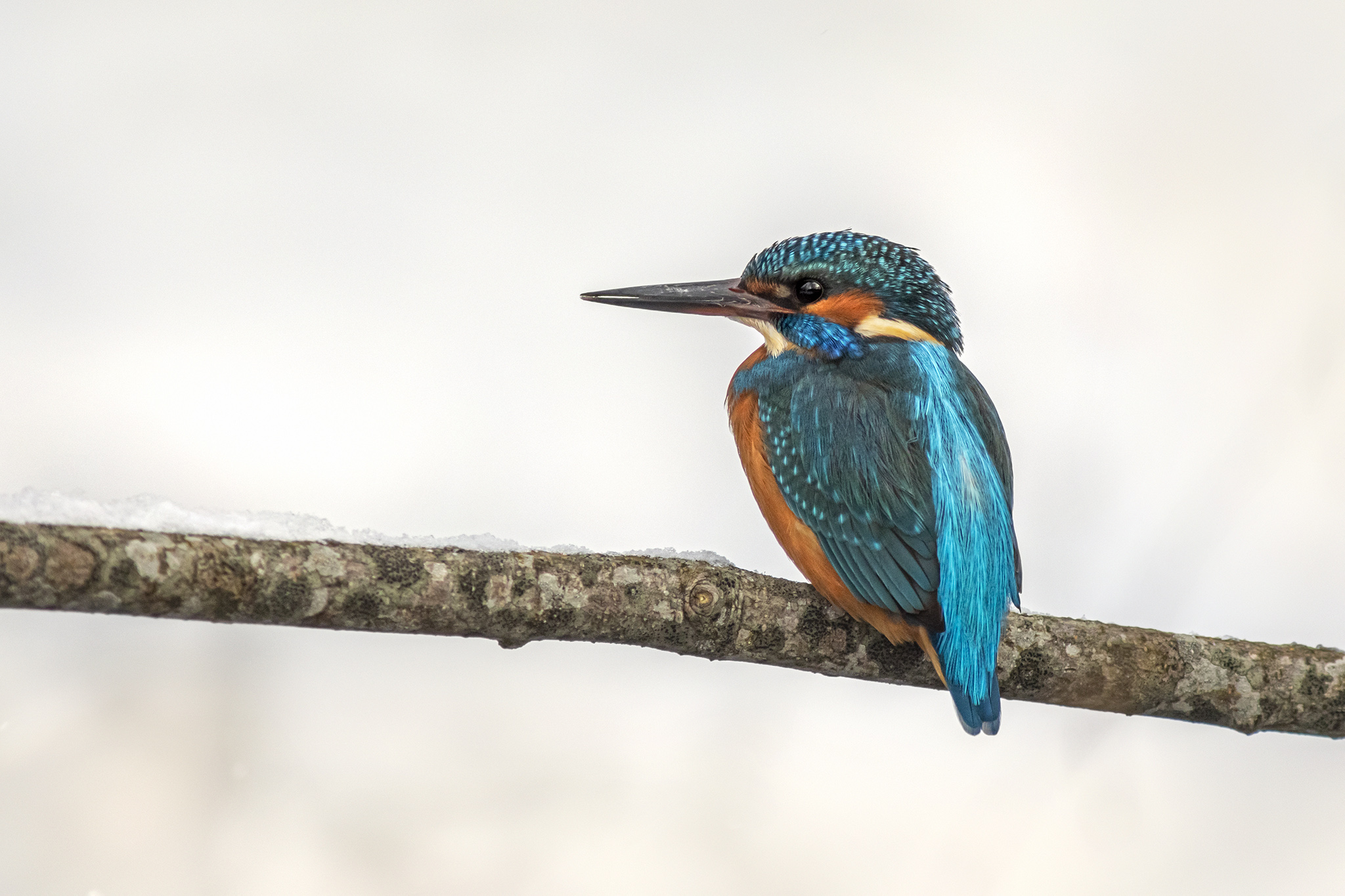The Common Kingfisher (Alcedo atthis) is a small and brightly colored bird species belonging to the family Alcedinidae. Renowned for its vibrant plumage and remarkable fishing skills, the Common Kingfisher is a cherished symbol of freshwater habitats worldwide.
Here are some key features and characteristics of the Common Kingfisher:
- Appearance: The Common Kingfisher is characterized by its striking plumage, which features bright blue and orange colors. The upperparts are predominantly iridescent azure blue, while the underparts are chestnut-orange, with a white throat and belly. The bird’s short, sharp bill is black, and its legs are red.
- Size: The Common Kingfisher is relatively small, with adults typically measuring between 13 to 17 centimeters (5.1 to 6.7 inches) in length, including its tail.
- Habitat: Common Kingfishers inhabit a variety of freshwater habitats, including rivers, streams, lakes, ponds, marshes, and coastal estuaries. They require clear water with an abundance of small fish, which they prey upon.
- Feeding Behavior: As piscivorous birds, Common Kingfishers feed primarily on small fish, which they catch by diving from perches near the water’s edge. They are capable of remarkable aerial acrobatics and can dive into the water with incredible speed and precision to catch their prey.
- Breeding: Common Kingfishers breed in burrows excavated in riverbanks or other suitable substrates. The female lays a clutch of eggs, typically between 5 to 7 eggs, which she incubates for around 19 to 21 days. Both parents participate in feeding and caring for the chicks until they fledge.
- Distribution: The Common Kingfisher has a widespread distribution across Europe, Asia, and parts of North Africa. It is found in a variety of freshwater habitats within its range, from temperate forests to tropical rainforests.
- Conservation Status: While the Common Kingfisher is not considered globally threatened, it faces localized threats from habitat degradation, pollution, and disturbance of nesting sites. Conservation efforts aimed at protecting freshwater habitats and maintaining water quality are essential for the survival of this species.
Overall, the Common Kingfisher is a beautiful and charismatic bird species that plays an important ecological role in freshwater ecosystems. Its stunning appearance, remarkable hunting prowess, and adaptability make it a cherished and iconic species among birdwatchers and nature enthusiasts worldwide.
Visited 39 times, 1 visit(s) today
Views: 77
Subscribe to the newsletter:
